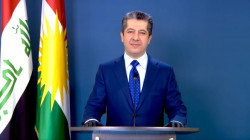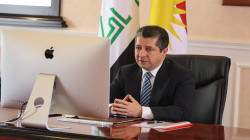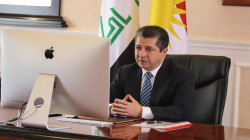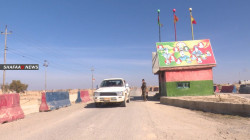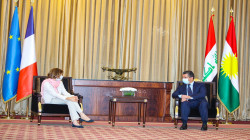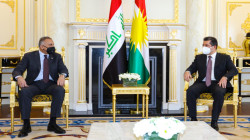PM Barzani: Iran should not export its internal unrest to neighboring countries
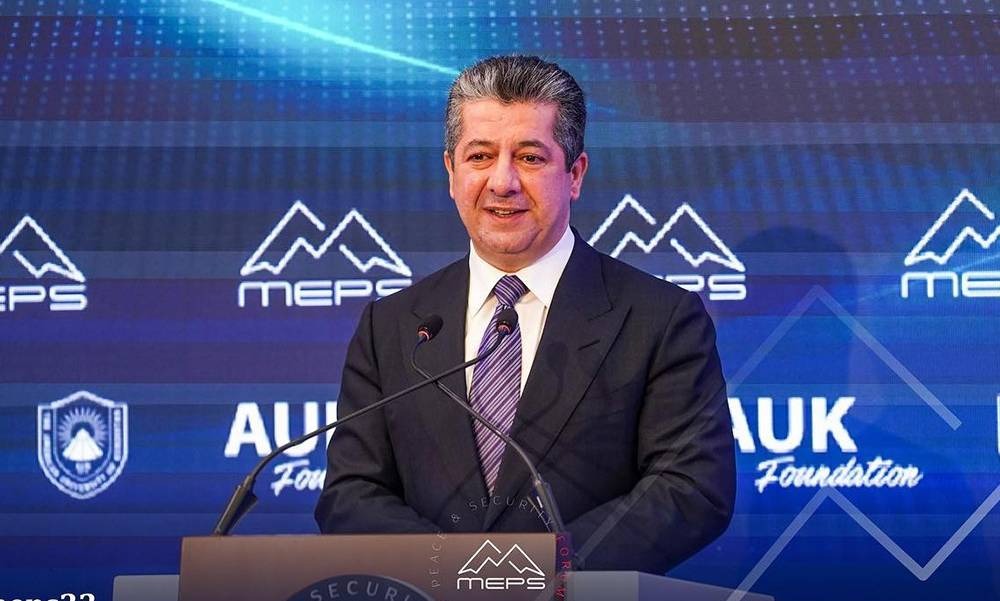
Shafaq News/ Prime Minister Masrour Barzani on Thursday denounced Iran's recent attack on the Kurdistan region as "violation to Iraq's territorial integrity", demanding the Islamic republic and other "neighboring countries" to refrain from undermining Iraq's sovereignty.
Prime Minister Barzani's remarks came during a discussion panel on the sidelines of the 3rd Middle East Peace and Security (MEPS) forum at Duhok's American University in Kurdistan (AUK) earlier today.
"There are ongoing problems between our neighbors and some of their oppositions and some of the groups who unfortunately do not respect the rule of law of the KRG and the Iraqi government," he said.
Barzani said that the Kurdistan region's policy with neighboring countries has always been in favor of establishing good ties and seeking mutual interest.
The prime minister dismissed Iran's attacks against the Kurdistan region as "violation of Iraq's territorial integrity", calling for addressing problems via dialogue rather than firing missiles.
"We are not and we never will be a threat to our neighbours," he asserted, "we understand that there are some different changes in the region, there is some unrest inside Iran, and none of that should be exported."
"We do not think that diverting attention from internal matters to anywhere outside would solve the issue," he continued.
"The Kurdistan Regional Government has a very ambitious agenda and wants to do more for his people," he said, "as a government, we have to be determined on doing what we believe is the best for the people. At the end, the government is for people and it should be by the people."
"The biggest threat to KRG is the fear of betrayal, deception, misperception, failure to separate facts from fallacies. It is important for people to understand the pressing issues," he continued, "reform is not something that you reach a point and say that you are done. It is an ongoing process."
"Iraq and Kurdistan should not depend on the oil and gas industry for a prosperous economy and brighter future," said the prime minister.
Barzani explained that his government has been working relentlessly to find new sources for treasury income in a bid to wane the region's economy off oil reliance.
"Significant progress has been made regarding agriculture," he added, "just recently, we have made the first ever shipment of agricultural products exported outside of Kurdistan."
"The digitalisation of government expenditures which helps to reduce corruption, manage government expenses, and provide opportunities for people to engage in a much faster and transparent way," he said, "we hope the government becomes paperless by 2025."
"We have recently built a state of the art data center. From now on, we make our decisions based on the available data; not by individual calculation or judgement."
"I do believe that at the federal level and the regional level…we also need to increase our cooperation to solve our problems, and for that, we are assembling a team to go to Baghdad and negotiate all the outstanding problems between Baghdad and Erbil."
"We have to work to create a hydrocarbons law, and that law will be the basis of our cooperation," he said, coyly referring to the Supreme Federal Court's ruling on the region's oil and gas law back in February as "illegal".
"The first step is for the federal government and international community to help clear the way and lift the sanctions and pressures," he said when asked about the future of the region's gas exports.
"Extremism, terrorism is a problem. We still have ISIS as the main problem. We still have other extremist ideologies as a problem," Barzani warned albeit ISIS being territorially defeated since 2017.
"Fighting terrorism and extremism is not only about military and intel operations. It requires government help on increasing and providing better services to people," Barzani added, "extremism grows where there is poverty, where there is a lack of services."
"There are some elements present in Sinjar that are not allowing this agreement to be implemented on the ground," Barzani said, referring to the presence of militias affiliated with the Kurdistan Workers Party (PKK) in the disputed district and the federal government's failure to honor the agreement.
"Despite the fact that the federal government cut the budget from the KRG, the KRG hosted about 2 million internally displaced persons (IDPs) and refugees from other parts of Iraq and from Syria," he said.
Barzani said that the KRG will continue hosting IDPs until they can return to a "decent life", adding, "we will do everything we can with the federal government to provide such conditions for them to return but until then, they are welcome to stay here."
